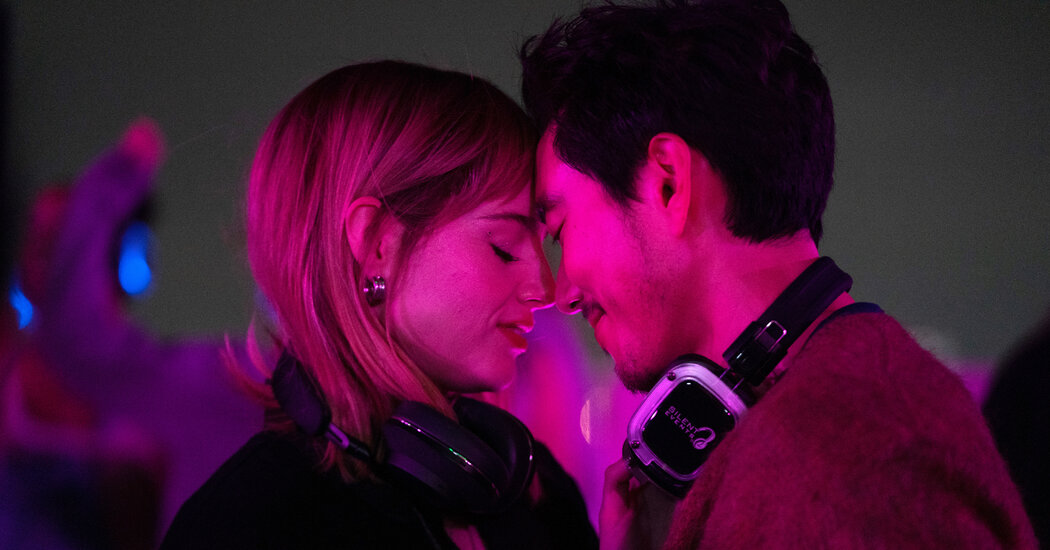Ned Benson, who wrote and directed “The Greatest Hits,” has explored this territory before. His previous work, “The Disappearance of Eleanor Rigby,” was a trilogy, made up of two films that explored a couple’s grief-stricken, tumultuous relationship from each of their individual perspectives, and a third that combined them. (As the title suggests, music was part of the story, too.) That film felt personal, and so does this one. It earnestly evokes the way grief mires us in memory, making us feel as if our personal timelines are slip-sliding and looping, eternally arrested in the past. Moving forward seems impossible.
But “The Greatest Hits” lacks the imagination of “Eleanor Rigby” and, at times, seems like it might be in the wrong genre. It’s easy to imagine a rom-com version of this movie, since the elements are all there — the hip location (mostly the Silver Lake and Los Feliz neighborhoods of Los Angeles), the meet-cute, the queer best friend (a mainstay of the genre, for better or worse), the crates of vinyl records, the pining, the hot guys, even the chemistry. But this movie lacks the lightness and humor of a rom-com, which might balance out all the dreary moments and make it feel more watchable. The version that exists feels more suited for lovelorn teens just off their first breakup than adults moving through profound loss and sorrow, more acquainted with the ways life can’t just stop when tragedy strikes.
“The Greatest Hits” proceeds slowly and repetitively, which doesn’t have to be a problem: The gentleness of the pace and storytelling gives the cast space to breathe and react to each other, to build relationships that feel reasonably authentic. Similarly, the music choices (which are all over the map both in genre and era) are fun and fresh, lacking the on-the-nose quality that a film with more bang-on choices might have provoked. But as it goes on, the movie begins to feel mired in its own high-concept conceit without space to develop it further. Is there a reason the only music that triggers time travel for Harriet is connected to Max? Are there tunes that throw her back to times she prefers not to remember? Why is it important to recall that she used to be a music producer?
There’s an interesting film dancing around the edges of “The Greatest Hits,” but there’s both too much sentimentality and not enough thought, and that’s too bad. For audiences in search of a good cry, it may still do the job. But for those of us for whom the music-driven time travel experience is still metaphorical, it’s cold comfort, a fantasy with no hope of fulfillment.
The Greatest Hits
Rated PG-13 for some language and innuendo, plus conversations about death and grief. Running time: 1 hour 34 minutes. Watch on Hulu.





